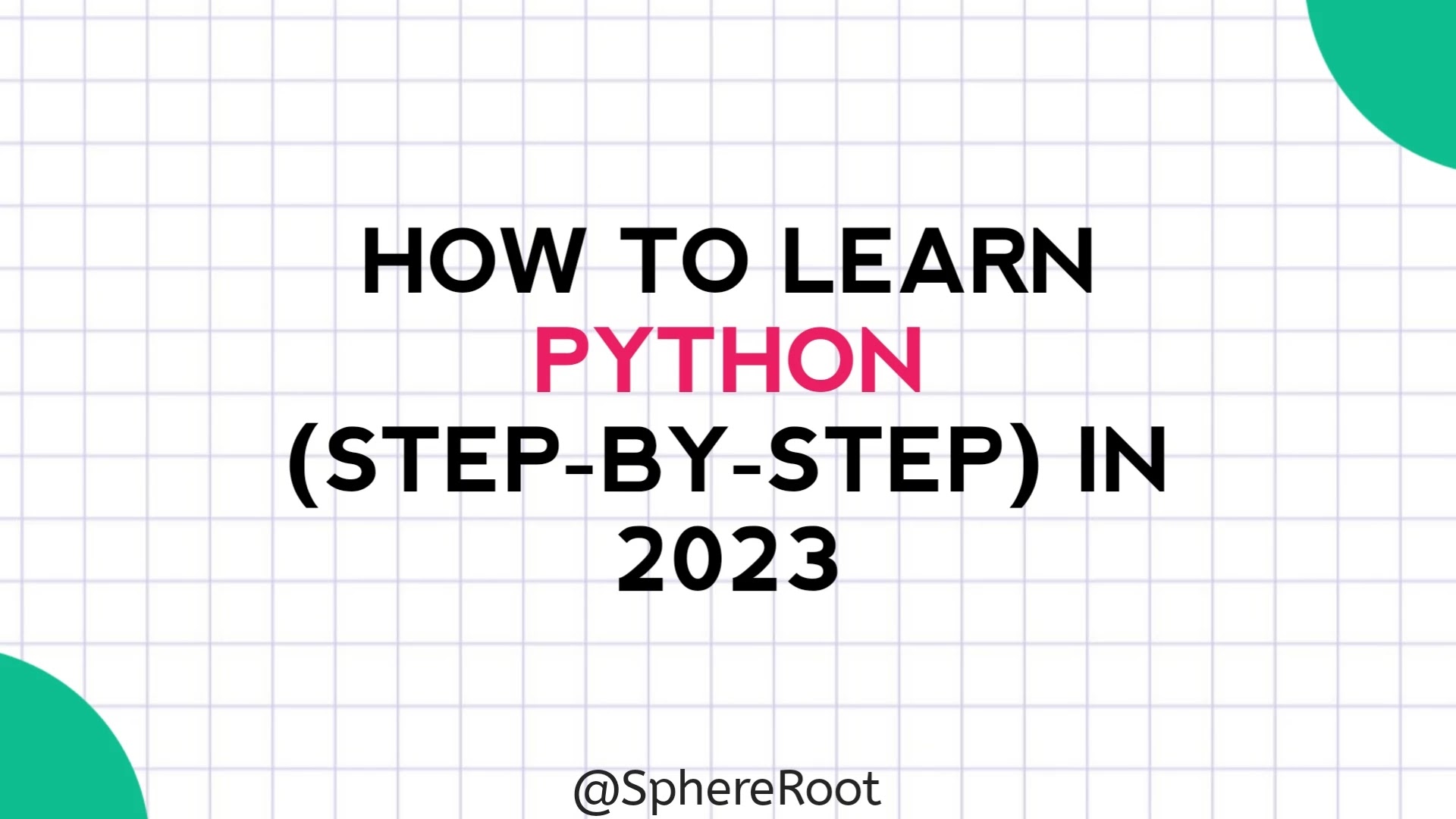How to learn Python (Step-By-Step) in 2023: Python is one of the most popular and beginner-friendly programming languages out there. Whether you're a complete beginner or have some coding experience, learning Python can open up a world of possibilities. In this article "How to learn Python (Step-By-Step) in 2023" , we'll guide you through the process of learning Python step by step, making it easy and enjoyable for you to embark on your programming journey.
How to learn Python (Step-By-Step) in 2023
 |
| How to learn Python (Step-By-Step) in 2023 |
Why Learn Python?
Python is a versatile language that is widely used in various fields such as web development, data analysis, artificial intelligence, and automation. Here are some compelling reasons to learn Python:
1. Python has a simple and readable syntax, making it easy to understand and write code.
2. It has a vast and supportive community, which means you can find plenty of resources, libraries, and frameworks to help you with your projects.
3. Python's popularity in the job market makes it a valuable skill for career advancement.
Getting Started with Python
To start learning Python, follow these steps:
a. Install Python: Visit the official Python website and download the latest version of Python for your operating system. Follow the installation instructions.
b. Choose an Integrated Development Environment (IDE): An IDE helps you write and run your Python code more efficiently. Popular options include PyCharm, Visual Studio Code, and Jupyter Notebook.
c. Write Your First Program: Start with a simple "Hello, World!" program to get a feel for Python's syntax and how it works.
Essential Python Concepts
To gain a solid foundation in Python, you need to understand essential concepts such as variables, data types, control flow, functions, and modules. These concepts form the building blocks of any Python program. Take your time to grasp them thoroughly, as they will be the backbone of your coding skills.
Hands-on Practice and Projects
Learning Python is best done through hands-on practice. As you learn new concepts, try implementing them in practical exercises and mini-projects. This approach allows you to reinforce what you've learned and gain confidence in your abilities. Building small projects, like a calculator or a text-based game, can be a fun way to apply your skills.
Resources for Further Learning
Learning Python is an ongoing process, and there are many resources available to help you continue your learning journey:
1. Online tutorials and courses
Platforms like Codecademy, Udemy, and Coursera offer Python courses for beginners.
2. Python documentation
The official Python documentation is a comprehensive resource that covers all aspects of the language.
3. Books
There are numerous Python books written specifically for beginners. Some popular titles include "Python Crash Course" by Eric Matthes and "Automate the Boring Stuff with Python" by Al Sweigart.
4. Online coding communities
Websites like Stack Overflow and Reddit have active communities where you can ask questions and learn from experienced Python developers.
Frequently Asked Questions (FAQs)
Q1: Is Python difficult to learn?
A: Python is known for its simplicity and readability, making it an excellent language for beginners. With consistent practice and dedication, anyone can learn Python.
Q2: How long does it take to learn Python?
A: The time it takes to learn Python varies depending on your commitment and the amount of time you dedicate to practice. With regular practice, you can become proficient in Python within a few months.
Q3: Can I get a job with Python skills?
A: Absolutely! Python is in high demand in the job market, with opportunities in web development, data science, machine learning, and more.
CONCLUSION
Learning Python is an exciting and rewarding journey. With its simplicity and versatility, Python opens doors to a wide range of possibilities in programming. Remember to start with the basics, practice regularly, and explore resources that suit your learning style. Embrace the challenges and enjoy the process as you master the language.
Please share this article "How to learn Python (Step-By-Step) in 2023" with your friends and family. Thanks for reading "How to learn Python (Step-By-Step) in 2023"... Happy coding!
Stay tuned with SphereRoot ...